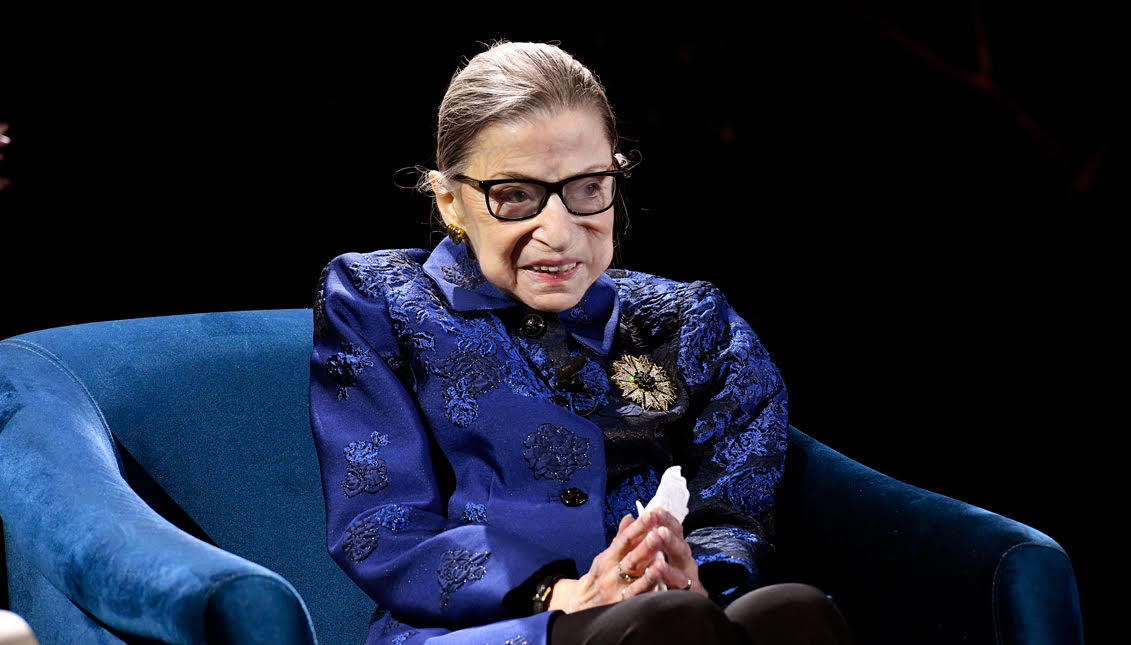
A look back at RBG’s efforts for the Latino community
As we mourn the loss of a Supreme Court Justice icon, let’s reflect on what RBG did for the Latino community.
On the night of Friday, Sept. 18, Justice Ruth Bader Ginsburg, a pioneer in some of the most important Supreme Court decisions ranging from LGBTQ rights to womens rights, died at 87 from cancer.
The “Notorious RBG,” as she became known, had sat on the Court since 1993.
Ginsburg’s journey was nothing short of amazing. She was the first female member of the Harvard Law Review, completed law school with a child and took care of her husband who had cancer, co-founded the ACLU Women’s Rights project, and was the second woman to ever be appointed to the Supreme Court.
Throughout her time on the Court, in addition to women’s rights, she was a voice for Latinos and immigrants and their civil, legal, and constitutional rights.
Some of her most recent efforts for the Latino community came in 2019, when she was an important vote in a 5-4 decision that blocked the Trump administration from adding a question about citizenship status on the 2020 Census.
During 2015, Ginsburg also voted on two landmark cases that impacted millions of Latinos.
The first being the Affordable Care Act otherwise known as Obamacare, and was intended to make affordable health insurance available for more people, expand medicaid, and support medical delivery at a low cost.
She also voted in favor of same-sex marriage as part of the Court’s ruling on Obergefell v. Hodges,the landmark ruling that required all states to issue marriage licenses to same-sex couples and recognize the validity of the unions in other jurisdictions.
“One of Justice Ginsburg's greatest legacies was that she understood and greatly respected the spirit of the law as much as the letter of the law. She was well aware of her place in history as one of the voices for the excluded, the oppressed, and those trying to find real justice in our courts,”said Domingo Garcia, the national president of the League of United Latin American Citizens, on her passing.
Ginsburg was also a big Latino defender in 2013, as Shelby County v. Holder took out a significant provision in the Voting Rights Act that mandated southern states get federal approval before changing voting rights.
This had serious consequences for Latinos and communities of color because the new rules seemed to look open the door to new voter suppression laws.
RELATED CONTENT
“Throwing out preclearance when it has worked and is continuing to work to stop discriminatory changes is like throwing away your umbrella in a rainstorm because you are not getting wet,” she said at the time.
When it came to immigration, Ginsburg was also a trailblazer in her decisions.
Over the summer, in June, RBG sided with the court's majority citing that the Trump administration had not properly terminated the DACA program, which protects millions of young immigrants from deportation across the country..
In 2012, Ginsburg also voted on Arizona v. U.S, and sided with the majority that expelled three laws in Arizona’s SB1070 — what the state calls “papers, please” law.
In Demore v. Kim, a 2003 case, Ginsburg argued against extended mandatory immigrant detention well before the Trump administration’s abuse of the practice..
Lastly, in the 2001’s Zadvydas v. Davis case, she joined the majority when deciding that the government could not keep immigrant detainees with an undetermined amount of time if their home countries refused to accept their extradition.
All in all, RBG was an ally, and one who will be sorely missed as 2020 comes to a climactic end.











LEAVE A COMMENT: